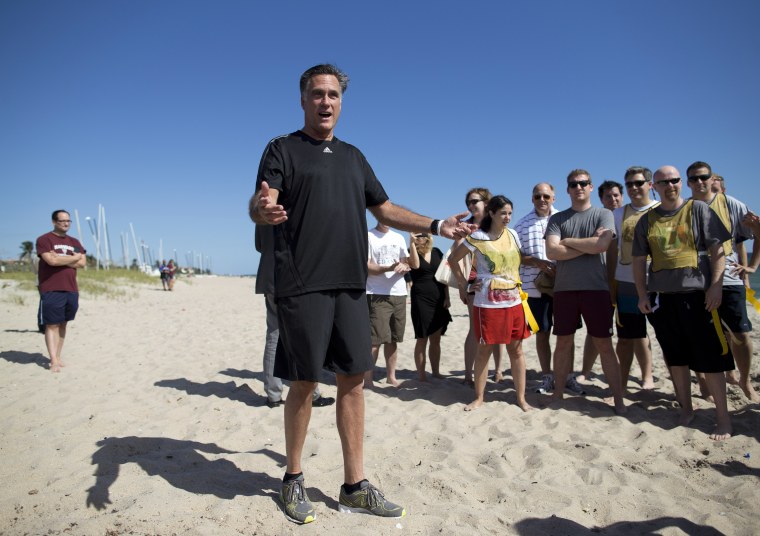After several days of debate prep, the presidential candidates are ready for their final face-to-face encounter of the 2012 presidential election. The next time they speak to one another will almost certainly be the phone call on election night when one of them concedes defeat to the other.
If the first presidential debate tested President Obama’s readiness for a close election, tonight’s final debate will test his challenger’s readiness for office.
The dynamic of last week’s debate suggests that both candidates are ready to attack each other’s positions. But this final debate centers on foreign policy, and– unlike their skirmishes on the economy– President Obama is on a far stronger footing than his rival.
Beyond the world stature that comes with any sitting president, Obama has a formidable record on foreign policy. After the international upheaval and hostilities of the Bush era, President Obama has enjoyed the equivalent of a diplomatic group hug over the last four years.
By withdrawing troops from Iraq, he not only ended a deeply costly and unpopular war, but removed the most disruptive and aggravating feature of America’s relations with both its allies and its frenemies.
His escalation of troops in Afghanistan, combined with a timeline for withdrawal, has allowed NATO allies to buy a few more years of political support for engagement on the original battlefield in the war against Al Qaeda.
And Al Qaeda itself is a shadow of the group that murdered thousands in New York, Washington, and Pennsylvania. With Osama bin Laden and his senior commanders dead, President Obama has ample argument to assert the clarity of his strategy and his decisiveness as a leader.
His rival, on the other hand, has some explaining to do.
Mitt Romney’s positions through the Republican primary debates are a confusing mixture of contradictory positions and hyperbolic comment.
He has simultaneously called Russia “without question our number one geopolitical foe” and bought millions of dollars of advertising suggesting that China might just hold that number one position.
On Afghanistan, Romney says he wants to see a timeline for American troops to withdraw, but also says he opposes a fixed date for that withdrawal. His positions appears to be either a secret timeline or a timeline with no definition to it.
On Libya, Romney vigorously opposed the limited American involvement as “mission creep and mission muddle” but now promotes more extensive American involvement in the civil war in Syria.
His approach towards Iran seems to be on a hair-trigger for military strikes. In December he told one Republican group that the president ought to have either launched air strikes or invaded Iranian territory to destroy or recapture a U.S. spy drone. He followed that by arguing at a GOP debate, hosted by Fox News, that the president’s approach to the drone incident was inviting war.
“Does timidity and weakness invite aggression on the part of other people? Absolutely,” he said. “A strong America, a strong America is the best ally peace has ever known. This is a president with – the spy drone being brought down, he says 'pretty please'? A foreign policy based on 'pretty please'? You have got to be kidding.”
More recently, Romney’s position on Iran’s nuclear program is far more aggressive than both the Obama and Bush administrations. Both presidents Obama and Bush said repeatedly that they would not tolerate Iran with a nuclear weapon. Romney, however, has declared– at least on his website and through advisers– that he will not accept an Iran with a nuclear “capability.” In person, speaking most recently to ABC’s George Stephanopoulos, he changed his position to “a nuclear weapon”.
The difference between the two positions is not just a matter of words: under the broader concept of a nuclear capability, U.S. policy under a Romney administration would be to take military action imminently.
Romney has been consistent on at least two areas of foreign policy. On Israel, he has repeatedly attacked President Obama for allowing any daylight between his position and that of the Israeli prime minister. And he has repeatedly attacked the president for the widely debunked notion that his first overseas trip amounted to “an apology tour.”
His own foreign tour last summer turned into an apology tour of another kind. In London, Romney alienated the leading conservative figures in British politics by suggesting that the city was not ready to host the summer Olympics. There was more than a little daylight between Romney and the British prime minister David Cameron, as well as the London mayor Boris Johnson.
In an effort to prove their closeness to Israel on the same trip, his aides suggested that a Romney administration would support any Israeli decision to strike against Iran in an effort to stop Tehran from developing a nuclear capability.
And the candidate himself stumbled when he suggested there were cultural reasons why the Palestinian people were less than capable of running a successful economy.
For any challenger, a foreign policy debate against a president is a tough scenario. For Mitt Romney, that scenario is only tougher because of what has emerged from his own mouth during his presidential campaign.
